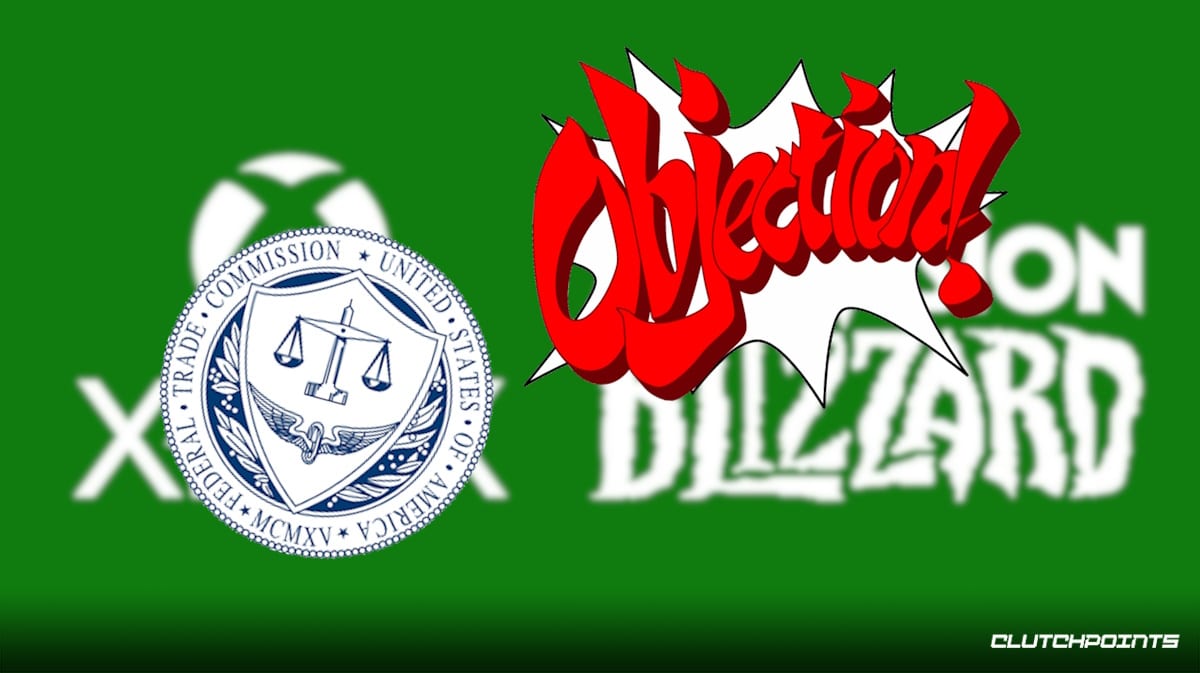FTC Appeals Activision Blizzard Acquisition Decision

Table of Contents
The FTC's Arguments Against the Acquisition
The FTC's core argument revolves around the potential for Microsoft to leverage its control over Activision Blizzard's vast portfolio – encompassing iconic franchises like Call of Duty, World of Warcraft, Candy Crush, and many more – to stifle competition within the gaming market. Their concerns boil down to several key points:
-
Monopolization Fears: The FTC argues that Microsoft's acquisition would create a near-monopoly, particularly in the console gaming market, allowing them to dictate pricing, limit consumer choice, and potentially harm innovation. This concern is heightened given Microsoft's existing dominance in the PC gaming market through Xbox and Windows.
-
Call of Duty's Significance: Call of Duty's immense popularity is central to the FTC's case. They fear Microsoft could make the game exclusive to Xbox consoles or severely limit its availability on competing platforms like PlayStation, thereby harming competitors and consumers.
-
Pricing Power: Reduced competition could lead to significantly higher prices for Activision Blizzard games and related services, including in-app purchases, DLC, and subscriptions.
-
Stifled Innovation: A lack of competitive pressure could decrease the incentive for Microsoft to innovate and improve its gaming offerings, potentially resulting in a decline in the quality and variety of games available to consumers.
-
Exclusionary Practices: The FTC is concerned that Microsoft could use its control over Activision Blizzard's intellectual property to exclude smaller competitors from the market, further consolidating its power.
Microsoft's Defense and Proposed Remedies
Microsoft has strongly refuted the FTC's claims, asserting that the acquisition will benefit gamers by expanding access to content and fostering innovation. To mitigate the FTC's concerns, Microsoft has proposed several remedies:
-
Long-Term Call of Duty Licensing: Microsoft has pledged long-term licensing agreements to keep Call of Duty available on PlayStation and other competing platforms, ensuring continued access for players regardless of console preference.
-
Cloud Gaming Commitments: Microsoft has committed to making Activision Blizzard games available on multiple cloud gaming platforms, promoting broader accessibility and avoiding platform lock-in.
-
Maintaining Activision Blizzard's Independence: Microsoft has insisted that Activision Blizzard will maintain a degree of operational independence, preventing excessive integration into Microsoft's existing gaming structure and preserving competition.
The Judge's Initial Ruling and its Significance
The initial ruling rejecting the FTC's attempt to block the acquisition was a significant victory for Microsoft. The judge found that the FTC failed to provide sufficient evidence to prove that the merger would substantially lessen competition. However, the FTC's appeal demonstrates their belief that the initial ruling overlooked crucial evidence and the potential long-term consequences of the merger for market competition. This appeal sets a crucial legal precedent for future M&A activity in the tech sector.
The Implications of the FTC Appeal
The FTC's appeal carries far-reaching implications for various stakeholders:
-
The Gaming Industry: The outcome will fundamentally reshape the competitive landscape of the gaming industry, influencing the pricing, availability, and overall quality of games.
-
Future Mergers and Acquisitions: This case will significantly impact how future M&A deals in the tech industry are reviewed and regulated. It could lead to stricter scrutiny of mergers involving large companies with substantial market power.
-
Consumer Protection: The decision's impact on consumer protection is paramount, determining whether consumers will enjoy a competitive market with diverse offerings or face limited choice and potentially higher prices.
Conclusion: The Stakes of the FTC Appeals Activision Blizzard Acquisition Decision
The FTC's appeal of the Microsoft-Activision Blizzard acquisition is a landmark antitrust case with profound implications for the gaming industry and beyond. The clash between the FTC's concerns about monopolization and Microsoft's promises of innovation and expanded access highlights the complexities of regulating the rapidly evolving digital market. The outcome will not only shape the future of gaming but also set a precedent for future mergers and acquisitions in the tech sector. Stay updated on the latest developments in this critical FTC Appeals Activision Blizzard Acquisition Decision case by following reputable news sources and legal analysis. The future of gaming competition hinges on the decision.

Featured Posts
-
 Bank Of Canada Rate Cuts On The Horizon Grim Retail Sales Data Suggests So
Apr 29, 2025
Bank Of Canada Rate Cuts On The Horizon Grim Retail Sales Data Suggests So
Apr 29, 2025 -
 Move Over Quinoa The New Supergrain Revolution
Apr 29, 2025
Move Over Quinoa The New Supergrain Revolution
Apr 29, 2025 -
 Temu Price Hikes The Hidden Cost Of Trump Era Tariffs For Us Consumers
Apr 29, 2025
Temu Price Hikes The Hidden Cost Of Trump Era Tariffs For Us Consumers
Apr 29, 2025 -
 Ukraine War North Koreas Admission Of Troop Deployment To Russia
Apr 29, 2025
Ukraine War North Koreas Admission Of Troop Deployment To Russia
Apr 29, 2025 -
 Dsv Leoben Praesentiert Neues Trainerteam In Der Regionalliga Mitte
Apr 29, 2025
Dsv Leoben Praesentiert Neues Trainerteam In Der Regionalliga Mitte
Apr 29, 2025
